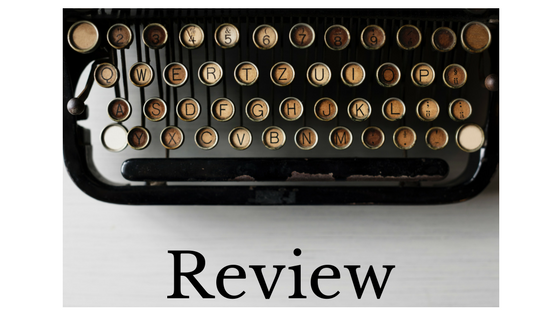“They had a plan, but we’ve carried out our own plan. They wanted the children to be abandoned like junk in a warehouse, but we opened a school. They wanted them to be like cattle in a stable, but we’ve made them feel like people.”
“And what use has that been? All the children in the September transport have died.”
“It was worth it. Nothing has been in vain. Do you remember how they used to laugh?….”
“But it lasted such a short time—“
“Life, any life is very short. But if you’ve managed to be happy for at least an instant, it will have been worth living.”
“An instant! How short is that?”
“Very short. It’s enough to be happy for as long as it takes a match to be lit and go out.”
 Synopsis
Synopsis
The Librarian of Auschwitz is a fictionalized account of Dita Kraus, a real-life teenager who survived the family camp in Auschwitz. While in the camp, she risked her life as the “Librarian,” managing the eight books that had been smuggled into the camp and used in the school as well as the “living books”—people who knew certain stories so well that they could be called upon to recite them as if they were reading the tale. Being caught with the books was sufficient cause to be shot on sight, and yet Dita and others risked their lives to keep these books and educate the children of Auschwitz.
“YA”
While The Librarian of Auschwitz is written on the reading level of a YA book with teenagers as the majority of the main characters, it is still highly readable as an adult reader. This isn’t a bubbly, romance-y YA. Though different stylistically, The Librarian of Auschwitz reminded me of The Book Thief—another well-written book that takes the Holocaust and its death and vicious ideologies and presents them in age-appropriate, though unsanitized ways. By its very subject matter, this book is brutal—but brutal in ways that are appropriate for older middle school through high school readers. The language and events are not dumbed down—it is clear what is happening and there were many times I teared up and had to take a minute—including when an arriving solider stood to finally announce that Bergen-Belsen, the camp Dita had been transferred to, was liberated in the name of Great Britain and her Allies.
Historical Fiction
Historical fiction set during WWII in the European theater, when done well, is one of my favorite genres. I adore All the Light We Cannot See (even if that makes me cliché) and last year inhaled Konar’s Mischling. When a few friends started posting on Instagram about Librarian of Auschwitz, I knew I had to read it.
Several of the characters featured in The Librarian of Auschwitz were real or were closely based upon real people. It names and tells the stories of many of the ordinary, extraordinary people who lost their lives in Auschwitz. I had never heard of Fredy Hirsch, the almost forgotten almost-hero of the family camp. I was not very aware of the Resistance operating within the camps, the almost uprisings. Fredy was simultaneously the light of the family camp school and an ordinary man. He could easily have been your kid’s soccer coach or the guy who leads bootcamp at my gym. And he was killed at roughly the same age I am now.
#NeverForget and White Nationalism
Holocaust Remembrance Day was a few weeks ago, with the usual posts of #NeverForget. And yet, it feels as if we have forgotten. It feels as if the farther we get away from the events of the 1930s and ‘40s, the easier it is to see the Holocaust as another fact to be memorized in history class. Currently there is a bill pending in Poland to ban referring to Auschwitz and other death and concentration camps in Poland as “Polish camps.” We distance ourselves and we forget. The Nazi machine ran because ordinary people were willing to serve as the nuts and bolts, the cogs that ran the machine. We tell ourselves it wouldn’t have been us, yet we are no different than the majority of Europeans—or even Americans—who willfully ignored or refused to believe what was happening. Or knew it was happening and were complicit in their silence. Feel free to disagree if you want, but the torches of Charlottesville tell me I’m right.
The sheer number of lives lost is so huge as to feel not real at times. And lost in these numbers is often the horrific way over six million people lost their lives to the racist machine that was Nazi Germany and its collaborators. We remember the number who died but not how, or even why. With the Holocaust fading in collective memory, with its events becoming less known and thus less shocking, the scourge of white nationalism is again making public its face.
Books like The Librarian of Auschwitz are vital tools in the moral battle in which we now find ourselves, knowingly or not. Dita Kraus was a real child—a child—who was taken from her home, herded into a train car, starved, tortured, beaten, and nearly killed (and not for lack of trying on the part of the Nazis). It is important that we see that behind these astronomical numbers and the vicious and morally wrong ideologies there are people—children—whose lives were and are again being threatened.
I put The Librarian of Auschwitz in the same category as Refugee. If we are to raise a kinder, more just generation immediately after ours, we must have books like this. We must read them, we must share them, and we must ensure they are taught.
Throughout history, all dictators, tyrants, and oppressors, whatever their ideology—whether Aryan, African, Asian, Arab, Slav, or any other racial background; whether defenders of popular revolutions, or the privileges of the upper classes, or God’s mandate, or martial law—have had one thing in common: the vicious persecution of the written word. Books are extremely dangerous; they make people think.
Recommended
It’s easy to avoid books set in the Holocaust as “too depressing.” To an extent, all books set in the death camps are bleak, or at least they are if they are accurately written. And yet, as much as any book set in the time can be, The Librarian of Auschwitz is hopeful. Just as the books served as a bright spot in the lives of the children, so too is this book a bright spot within Holocaust literature. It is a book of resistance and love, match sparks amidst the darkness of the camps. Even if you find this time period difficult to read about, I recommend The Librarian of Auschwitz. The YA reading level make it a bit easier to read than some others and it is vitally important, more than ever, that we read stories of what happens when we allow racist ideologies to take hold—it starts on the fringe and then you look up and realize the entire cloth has unraveled, the fringe become the mainstream. We still have time.
Notes
Published: October 10, 2017 by Henry Holt & Company (@henryholtbooks)
Author: Antonio Iturbe, Translator: Lilit Thwaites
Date read: January 28, 2018
Rating: 4 ¾ stars
Header photo credit :

